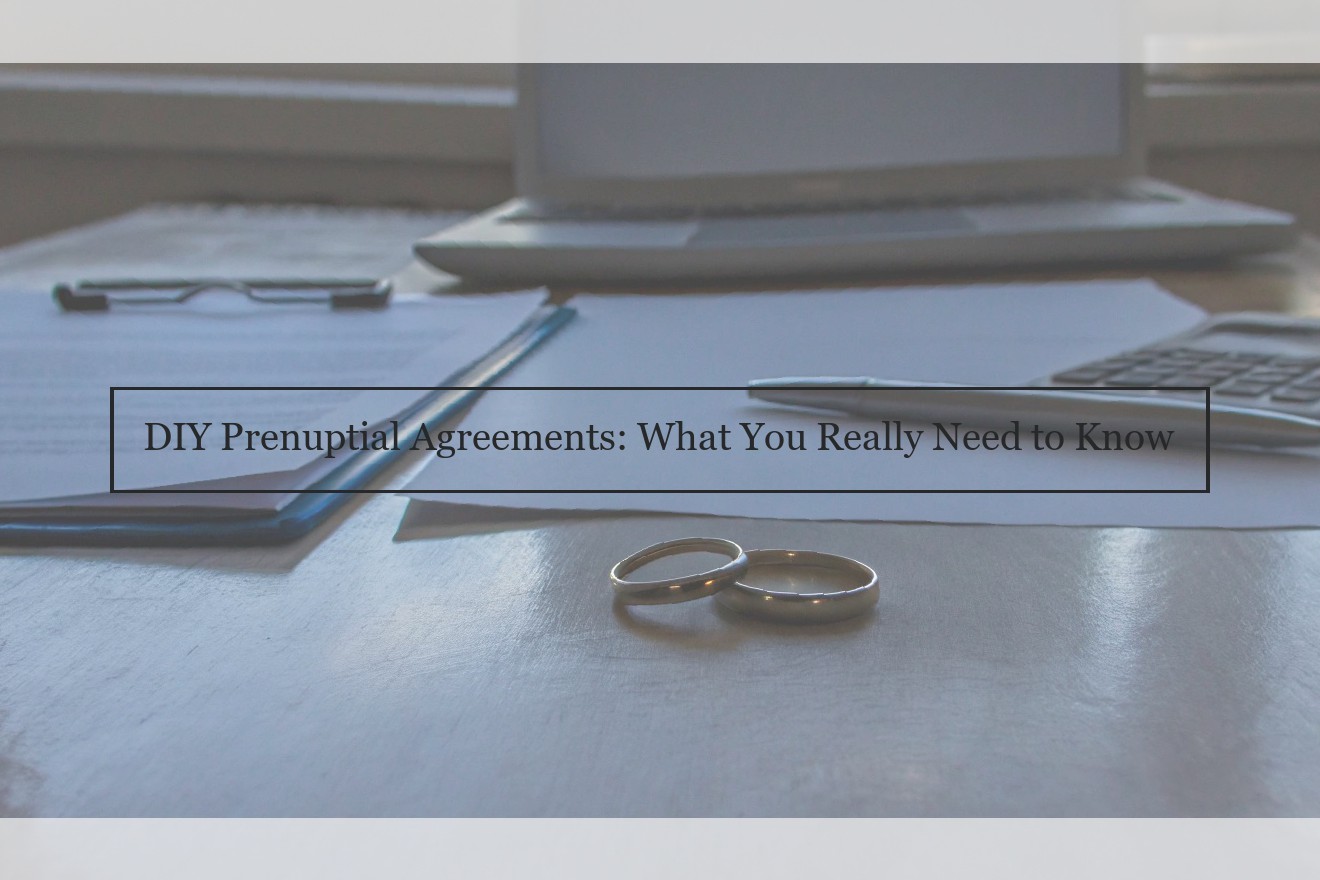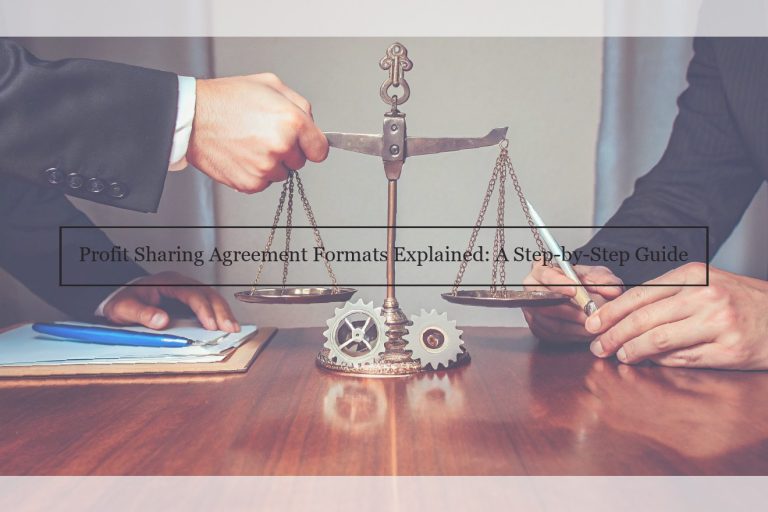A Primer on Prenuptial Agreements
A prenuptial agreement, often referred to as a premarital agreement, is basically a contact between two parties that are contemplating marriage. A properly drafted prenuptial agreement will typically include provisions regarding the division of assets and debts of the respective parties in the event of divorce or death of one of the parties. As such the agreement also typically includes how property and other related issues would be addressed during the marriage such as rights to alimony and disposition of property acquired during the marriage. Resolving these types of issues prior to the marriage may give peace-of-mind to the parties and their family members.
For most couples that are looking to have children , issues such as custody and the possibility of avoiding the expense and emotions of a contested divorce trial are often cited as reasons for entering into a prenuptial agreement. In some cases a prenuptial agreement may also serve as a marital contract that addresses estate planning issues.
Can You Legally Draft a Prenup on Your Own?
Since the laws governing prenuptial agreements vary by state, and in the event you’re thinking about your own DIY prenup, it’s important to know if this is permitted in your state. Under the Uniform Premarital Agreement Act, a number of states allow prenuptial agreements to be entered into before marriage as long as both spouses give up certain legal rights under the law.
These rights given up by spouses will vary from state to state but can include eliminating the right to support, sharing property in the event of divorce or death, the authority of court to divide property legally upon divorce (what will be separate and marital property) and disclosure of your assets beforehand.
While most states do require both spouses to voluntarily sign the agreement, some do not require it to be made in writing. In fact, even if you fail to have the agreement written out, your premarital agreement may still be legally binding based on the conduct of each party.
Benefits of a Do It Yourself Prenup
While many people consider it vital to have an attorney draft the prenuptial agreement, a DIY prenup does have the potential for some benefits. The potential benefits of a DIY prenup include:
Save Money
The most obvious selling point of a DIY prenup is that it will save you money. The average cost of a prenup ranges from $1,000 to $3,000. If you choose to do the work yourself or get your attorney to draft the prenuptial agreement, you could save thousands of dollars.
Flexibility in Terms
If you are doing the preparatory work on your own, you can be as flexible as you want in terms of the individual elements of the agreement. You aren’t bound by the confines of what an attorney may consider "reasonable."
Closet Polygamists
If you are marrying a closet polygamist, you could find it very sensitive to discuss the need for a prenup with your spouse, even if they agree to it in principle. A DIY prenup may allow the closeted party to avoid future embarrassment while still allowing you to structure your financial future as you think best within the confines of the law.
Dangers and Drawbacks of DIY Prenups
Despite the cost, there are many advantages to having a prenuptial agreement. Since this is a legally binding document, however, it is crucial that the legal jargon is accurate and that the conditions are fair to both partners involved. Just like with any other type of professionally prepared legal document, an advantage of hiring a lawyer is that they are a lot more likely to have a strong understanding of contract law than the general population. This means that the likelihood of legal pitfalls is significantly reduced.
Are you aware that, in many states, certain types of clauses in your prenuptial agreement can make it unenforceable? Or that you may eliminate the rights of that property to become joint property? Or worse yet, that you may completely unintentionally disinherit one of your children? Without a qualified professional, there remains a very real possibility that your essential assets and financial security could be impacted in potentially devastating ways.
Some common examples that make prenups invalid include non disclosure of assets and not allowing for enough time for an attorney to review the document. In some cases, if one of the parties isn’t allowed an opportunity to read the document or make changes, this is also a reason for an agreement to be overturned. One of the most important issues is that both partners have to be on equal ground during negotiations; if one party has more power, this clause can be considered coercion, which can greatly reduce enforceability.
Steps for Preparing a Basic DIY Prenup
Once you and your fiancé are ready to go over the details of a prenuptial agreement, these are the steps to take:
- Disclosure of Assets and Debts. Both you and your fiancé will need to list all of your assets, debts and income in writing. The list should include all savings and checking accounts, other investments, property and vehicles. Also include any pension plans or retirement accounts.
- Identify Separate Property. You will also need to determine what property you have that is considered separate from the marriage. This typically includes anything that either of you owned prior to marriage, as well as inheritances, personal gifts and personal injury awards.
- Identify Community Property . Now it will be time to list all of your community property (or "marital property") – that’s anything that you acquire after you’re married. Your list should show ownership of the property, as well as details about how that property is funded (jointly or separately).
- Legal Language. Writing up a divorce settlement agreement for divorce might seem relatively simple when lawyers help you do it, so you can imagine that it’s even harder to come up with legal language yourself.
There are a variety of forms available online that have special language and legal procedure that are required. On the bright side, these forms are typically quite affordable and can save you many thousands later in the event of a divorce. It’s a good idea, however, to have a family law attorney look over the documents prior to getting them signed.
When to Get Legal Help
When creating a DIY prenuptial agreement, it is crucial to consult a lawyer at some stage, whether it is before or after its creation. Even with a robustly drafted agreement, there may be gaps or other issues that require remediation. Without the oversight of a lawyer, or even more than one lawyer, the least effective prenuptial agreement may be ruled invalid by a court if it later winds up the centre of a contested divorce or other situation. In DIY situations, the parties without lawyers are warned to do their research as thoroughly as possible or better yet, in the best case scenario, seek both independent legal advice/representation or undertake alternative methods of dispute resolution like collaborative law or mediation. The party who is subject to the prenuptial agreement may suffer the most if the agreement is found invalid because most courts will award full relief to the other spouse under the applicable legislation regardless of what the prenuptial agreement says.
Court ordered remedies may even place the prenuptial parties on opposite sides of the courtroom requiring that each hire their own lawyer and retain the right to make arguments that undermine the ownership of property and other considerations that were discussed in the agreement. A disproportionate amount of time and expense then goes into a comprehensive analysis of previously agreed to provisions (which the Court reviews on appeal in its entirety) losing sight of the intent of the parties to the original agreement, the protection of third parties (for example, lenders that were the intended beneficiaries of the prenuptial agreement), and ultimately the freedom of parties to agree to reasonable limits on courtroom intervention.
Following a DIY approach is a consideration that must be weighed against the risks of an unanticipated adverse outcome. Again, even if the party that is subject to the prenuptial agreement agrees to the terms, they still have the right to plead for a court ordered variation. Given these risks, unless the parties are aware of and prepared to gamble with the potential downsides, it is strongly recommended that a lawyer is consulted in both the drafting of a prenuptial agreement and any subsequent litigation with respect to it.
Other Options Besides Self-Drafting a Prenup
An alternative to a DIY prenup is filling out a generic and often incomplete online form. You can find these on a number of websites. They function by asking what you want in your prenup, and then prepping one for your approval based on your answers. Now, these contracts may be inexpensive, maybe even free, and they are certainly a time saver … but the key is that they are a generic contract, and they do not take into account your unique situation. This is important as you and your fiancée probably do not have the same assets, or debts, other people have.
Essentially, these templates are for people whose situations are exactly the same as the descriptions on a checklist. If you are reading this article, then your situation likely does not fit in that category, and you should hire an attorney .
There’s always the option of creating an agreement with no legal assistance at all, but this is risky, as there’s very little guarantee that this contract will hold up when put into the court system. It also might leave something vital missing from the contract:
While some agreements can be easily created, a prenuptial agreement is not one of them, as there is just too much that can go wrong in a DIY contract. In some cases, your own assets could actually be yours — until you marry and enter into that contract. If mistakes are made, you can end up losing everything. This is why you need an attorney to make sure that a prenuptial agreement is fair for everyone involved, crafted correctly, creates enforceable promises, and prevents the possibility of years of emotionally and financially draining litigation after you’re married.



+ There are no comments
Add yours